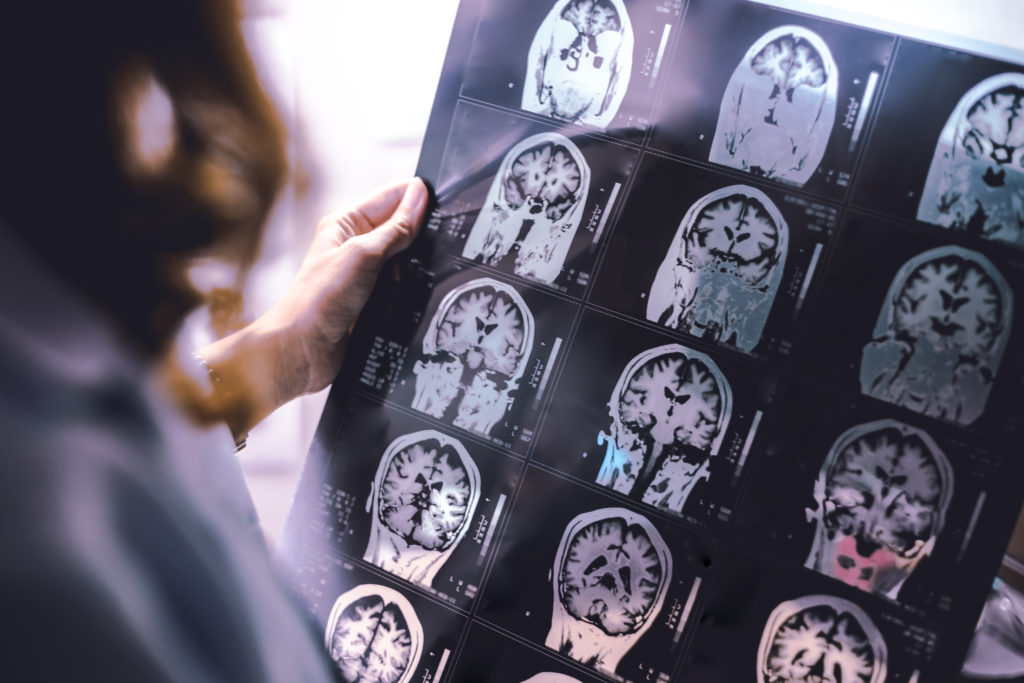
Well, this is a question that an international collaboration of researchers coordinated by the University of Cambridge set out to answer. They analysed over 125,000 brain scans from over 100 studies and have built brain charts form a 15-week old foetus to a hundred year-old. This gives new unprecedented insight into the changes in the human brain over a lifetime. Some key milestones in brain development are:
-
- The volume of grey matter (brain cells) increases rapidly from mid-gestation onwards, peaking just before we are six years old. It then begins to decrease slowly.
- Grey matter volume in the subcortex (which controls bodily functions and basic behaviour) peaks in adolescence at 14-and-a-half years old.
- The volume of white matter (brain connections) also increased rapidly from mid-gestation through early childhood and peaks just before we are 29 years old.
- The decline in white matter volume begins to accelerate after 50 years.
This is an amazing technical feat and is an incredibly useful clinical tool but also just gives us fascinating insights into the brain and what happens to our own brains over our lifetime.
I now know I need to look after my white matter, gulp!
Reference:
R. A. I. Bethlehem, J. Seidlitz, S. R. White, et al.
Brain charts for the human lifespan.
Nature, 2022
DOI: 10.1038/s41586-022-04554-y
More Quick Hits
Online Learning Triggers Different Stress Responses
Quick HitsDaily brief research updates from the cognitive sciences ot so long ago all learning went online – out of necessity. There has been plenty pf research into differences in online learning and in-person learning but this study by Gellisch...
Use It Or Lose It – Mental Activity Reduces Dementia
Quick HitsDaily brief research updates from the cognitive sciences regularly write on which activities reduce risks of cognitive decline (just last week I reported on how your job can protect your mental abilites with age and also doing household...
Why Thinking Makes You Tired
Quick HitsDaily brief research updates from the cognitive sciences e all know that feeling of having engaged in hard cognitive, thinking, tasks, and feeling tired. If it goes on long enough, we may feel mentally fatigued, drained, or even...
Your Job Can Protect You From Cognitive Decline
Quick HitsDaily brief research updates from the cognitive sciences f you have the right job that is. First let’s understand what the researchers were investigating. There is something strange going on with Alzheimer’s - we know that in Alzheimer’s...
How Nature Is Good For Your Health
Quick HitsDaily brief research updates from the cognitive sciences have reported multiple times how nature is good for your health. For example, in my article on the simple benefits of walking I also show how nature helps in multiple ways such a...
Do Your Chores, You’ll Live Longer – And Better!
Quick HitsDaily brief research updates from the cognitive sciences o, I haven’t been paid to write this by irate spouses or parents! Fact is doing the chores could be very beneficial to your wellbeing. How so you may ask? Well, I admit I have...
Why Having a Hit Reduces Creativity
Quick HitsDaily brief research updates from the cognitive sciences n music this happens often – a band lands a hit but then fails to do anything special again. A well-known occurrence with hits like Tequila in 1958 being the ultimate one-hit wonder...
The Surprising Results Of How Music Reduces Pain in Your Brain
Quick HitsDaily brief research updates from the cognitive sciences hen you’re in pain any form of relief is welcome – we tend to immediately revert to pain killers but there are many other methods of, at least, reducing pain. I have recently...
Smartphones Improve Your Memory
Quick HitsDaily brief research updates from the cognitive sciencesany people believe that using smartphones and other electronic devices is ruining our memories and ability to think or simply use our brains. Research has shown a more nuanced...
How Meditation Helps Pain In Your Brain
Quick HitsDaily brief research updates from the cognitive sciences es, meditation can help with pain by changing your experience of it. I reported on that here. Another piece of research just published shows that how experienced meditators and...










